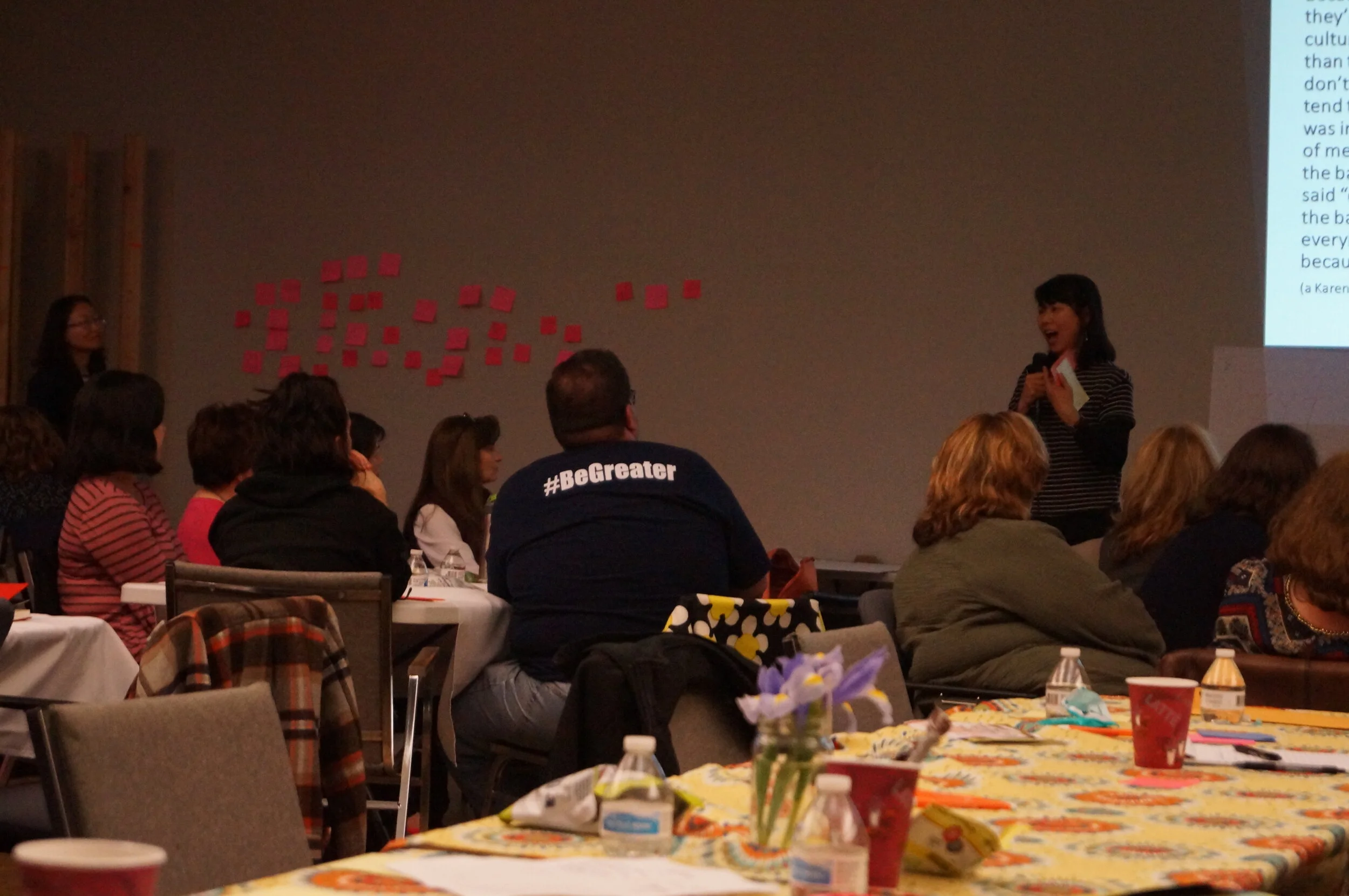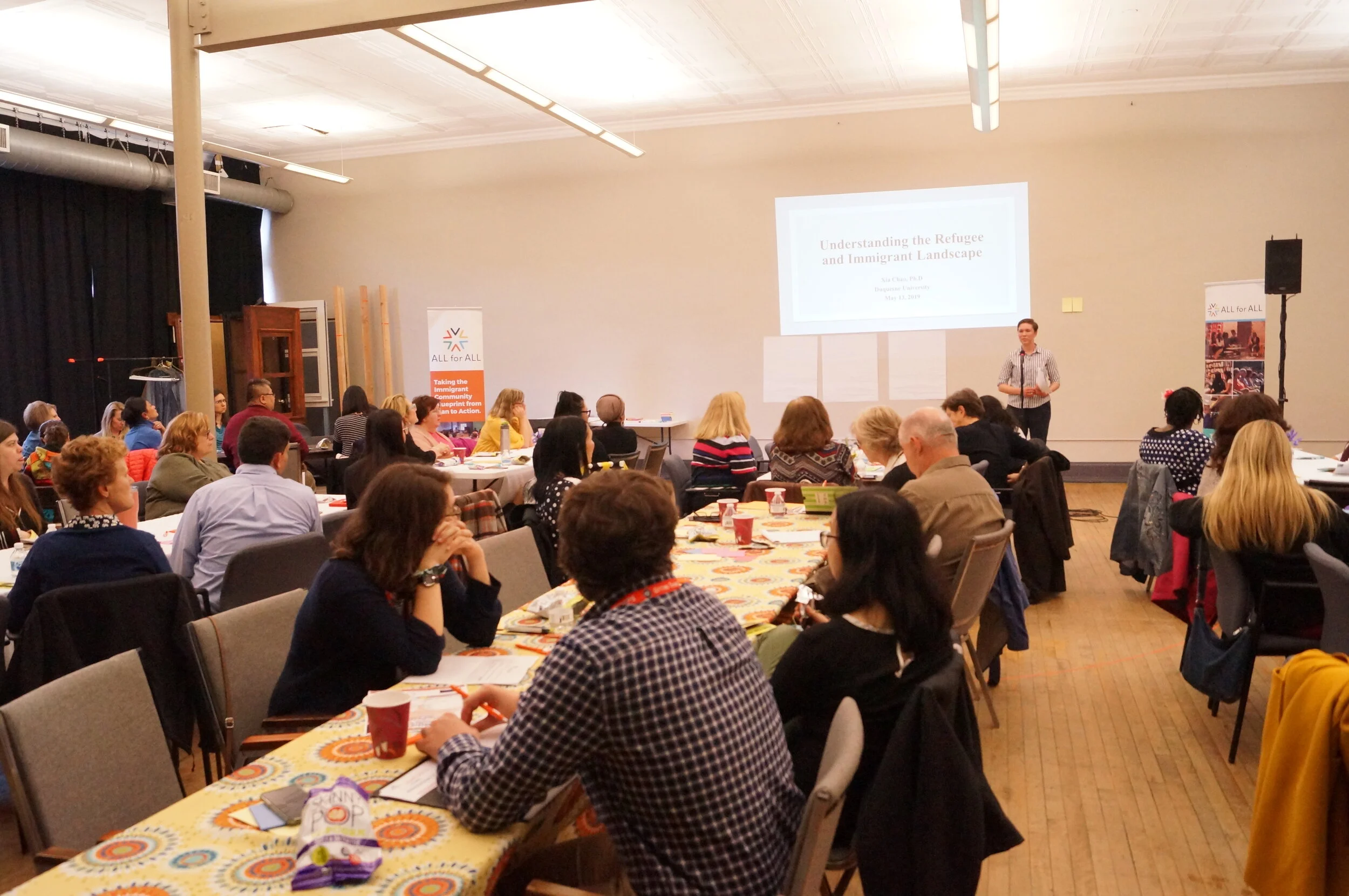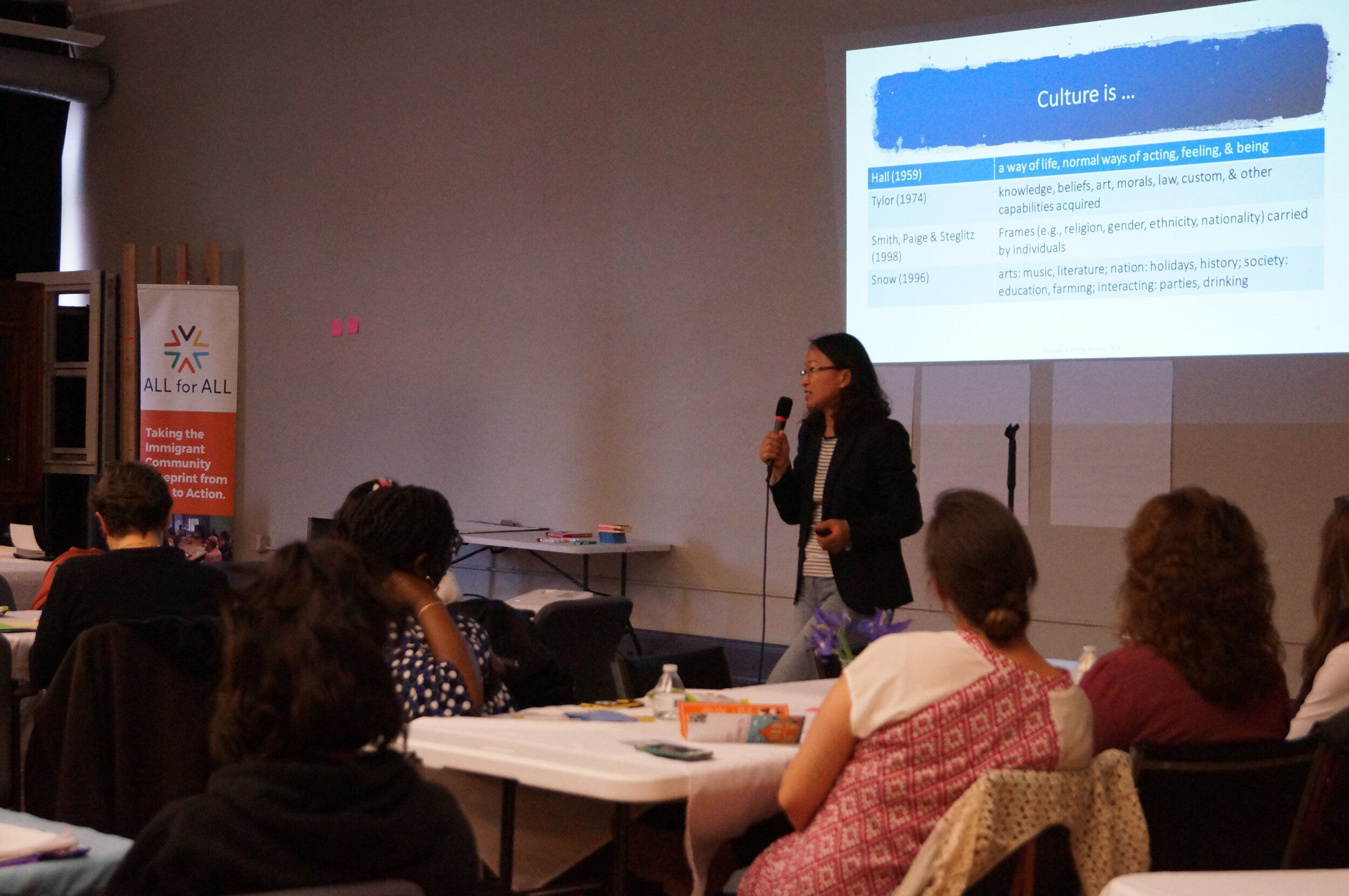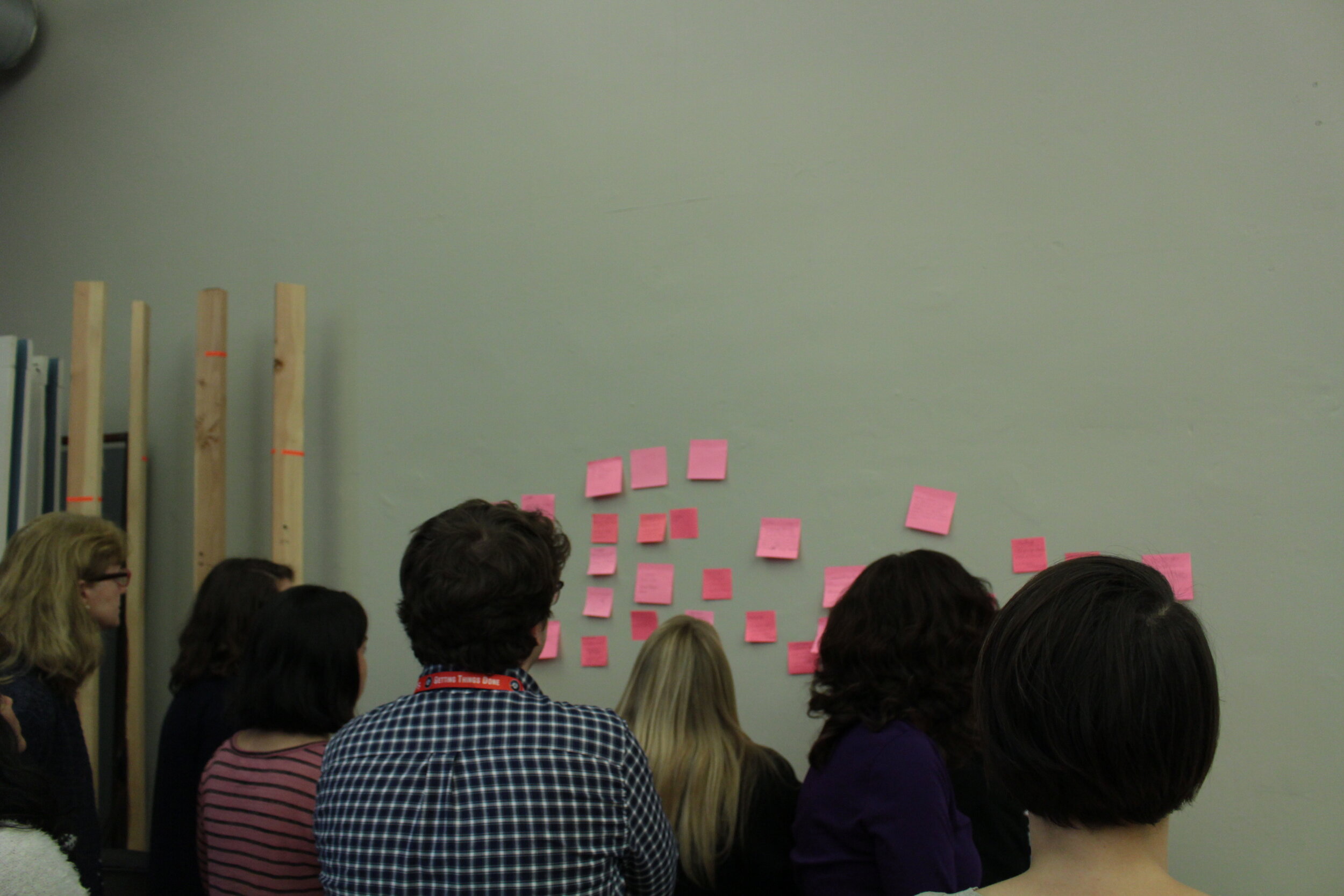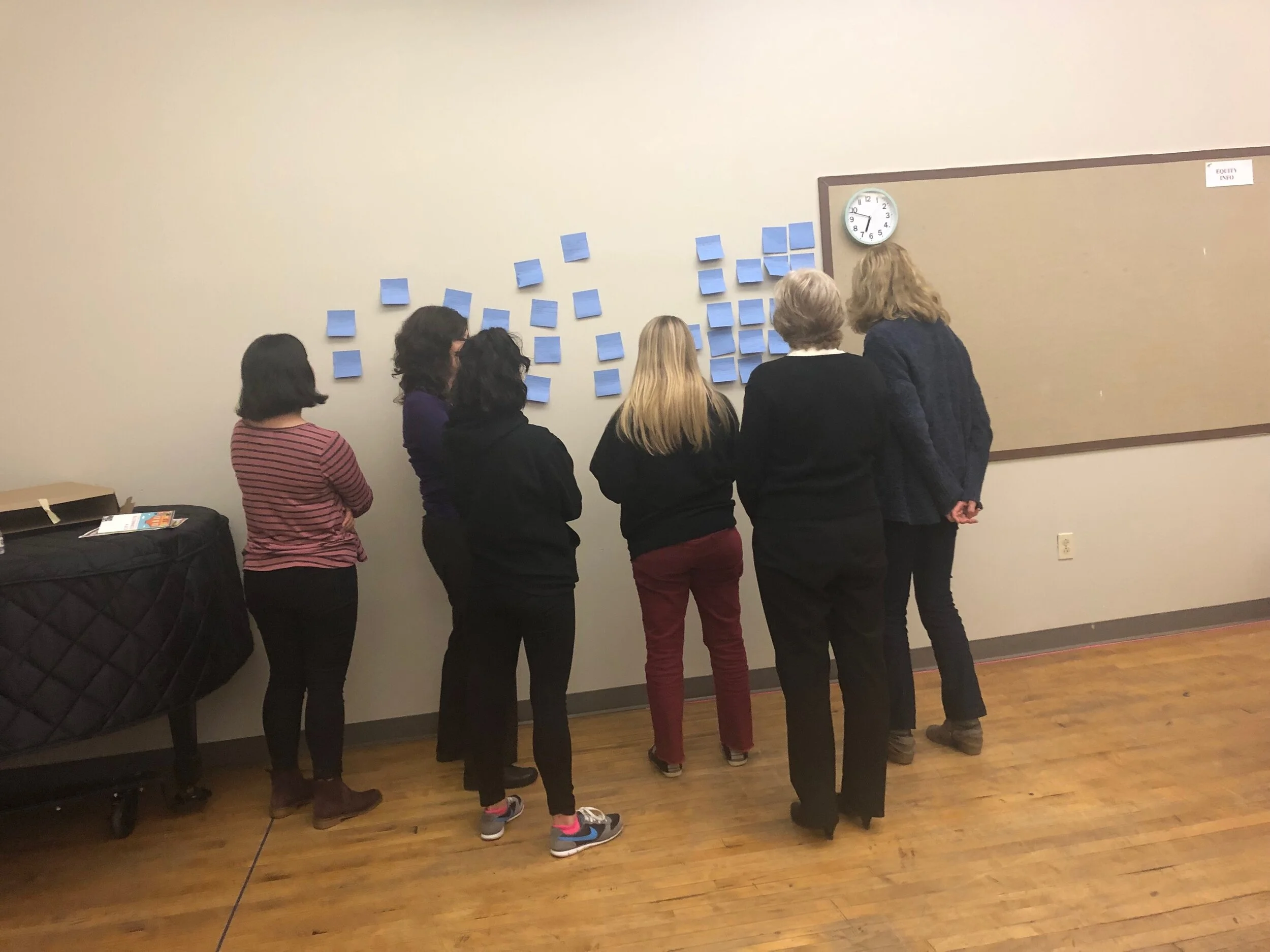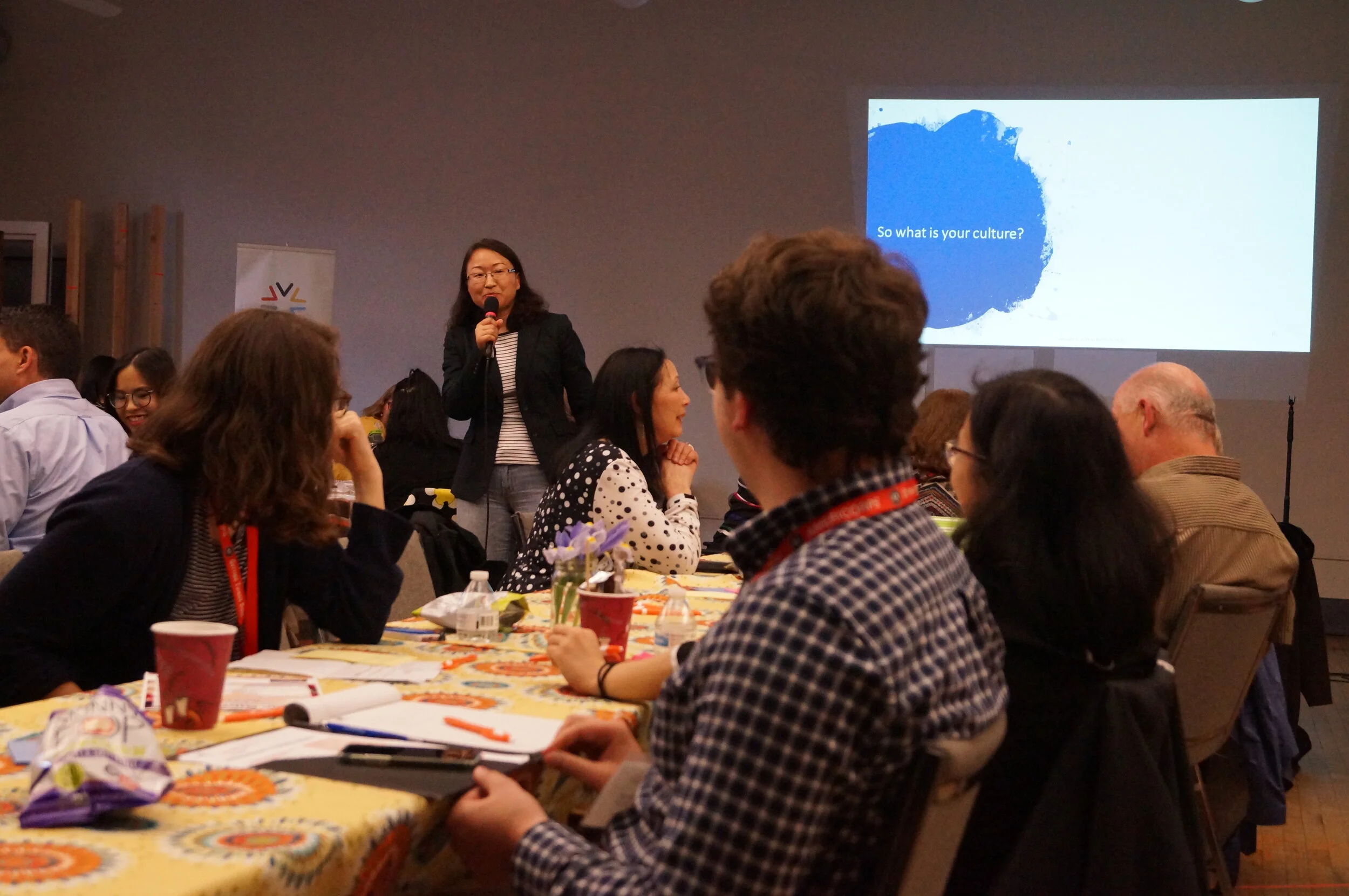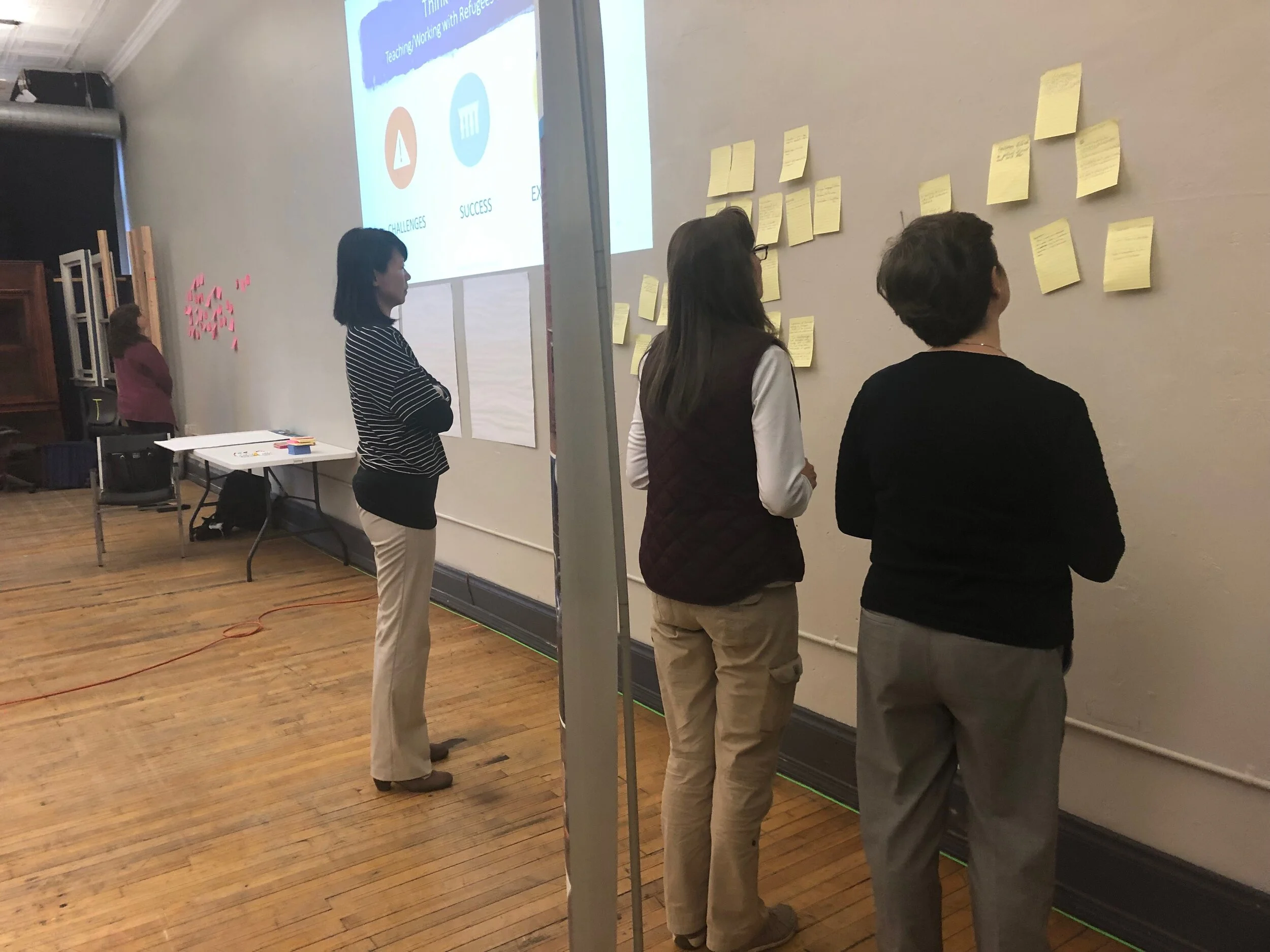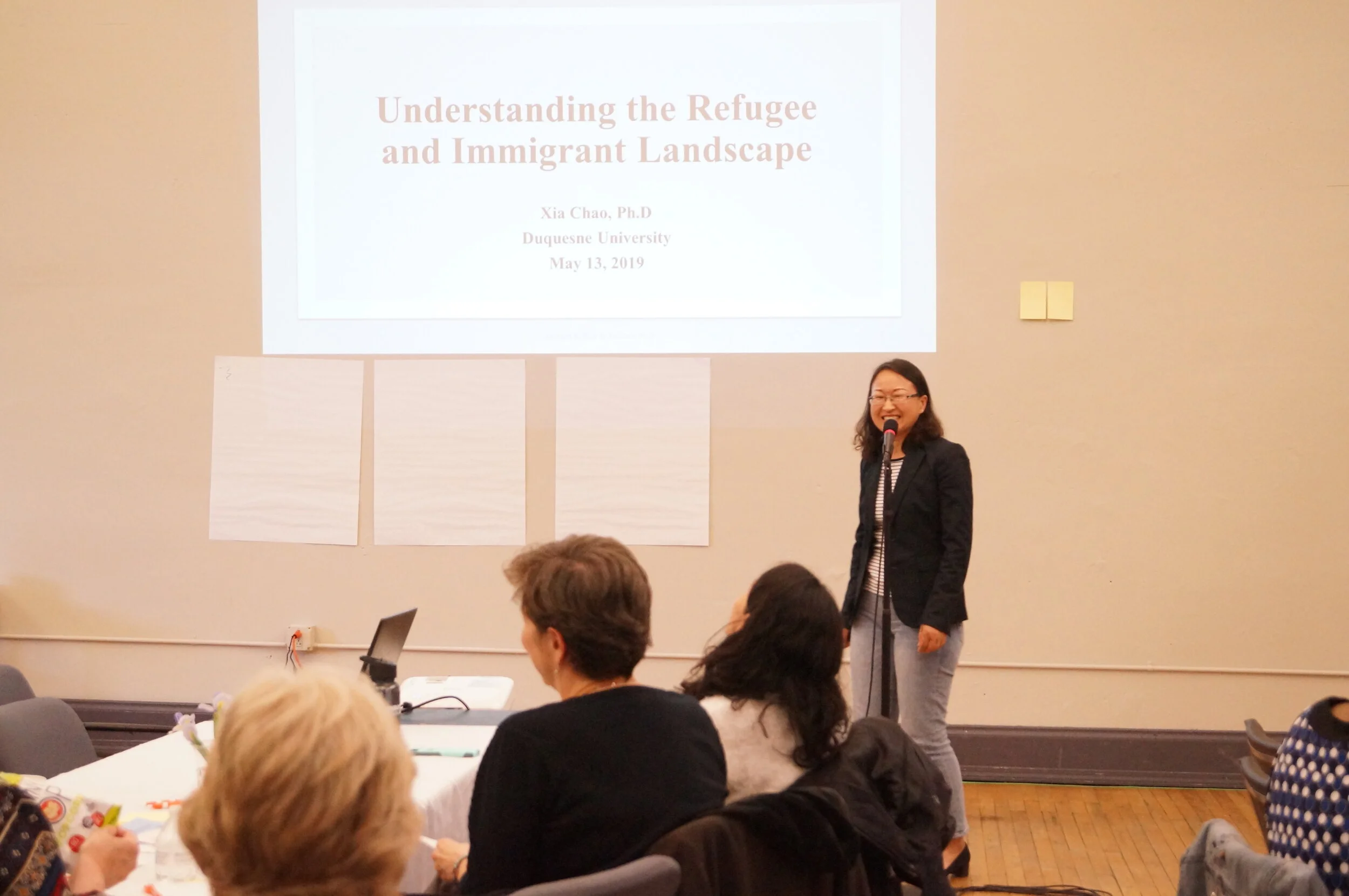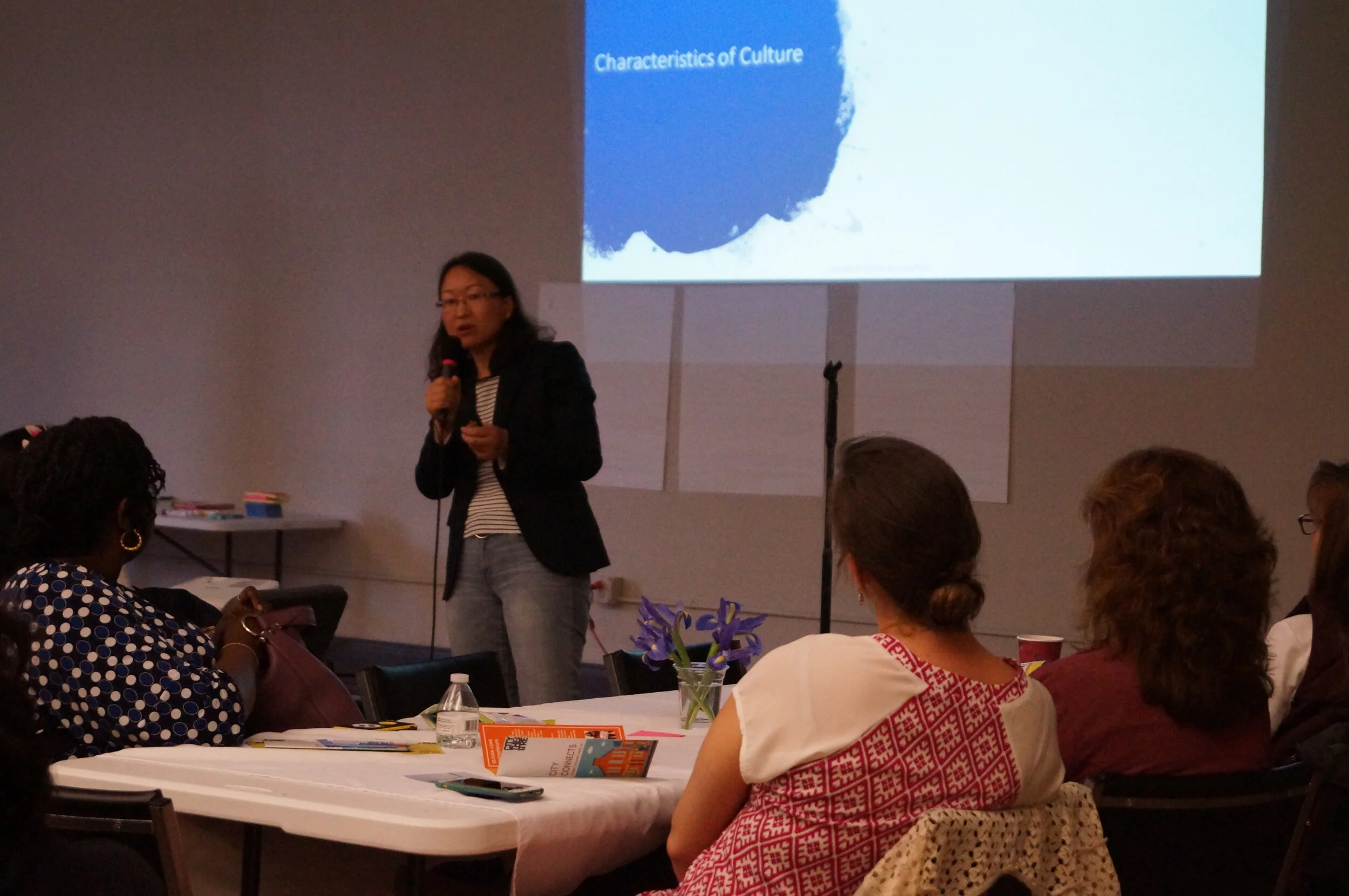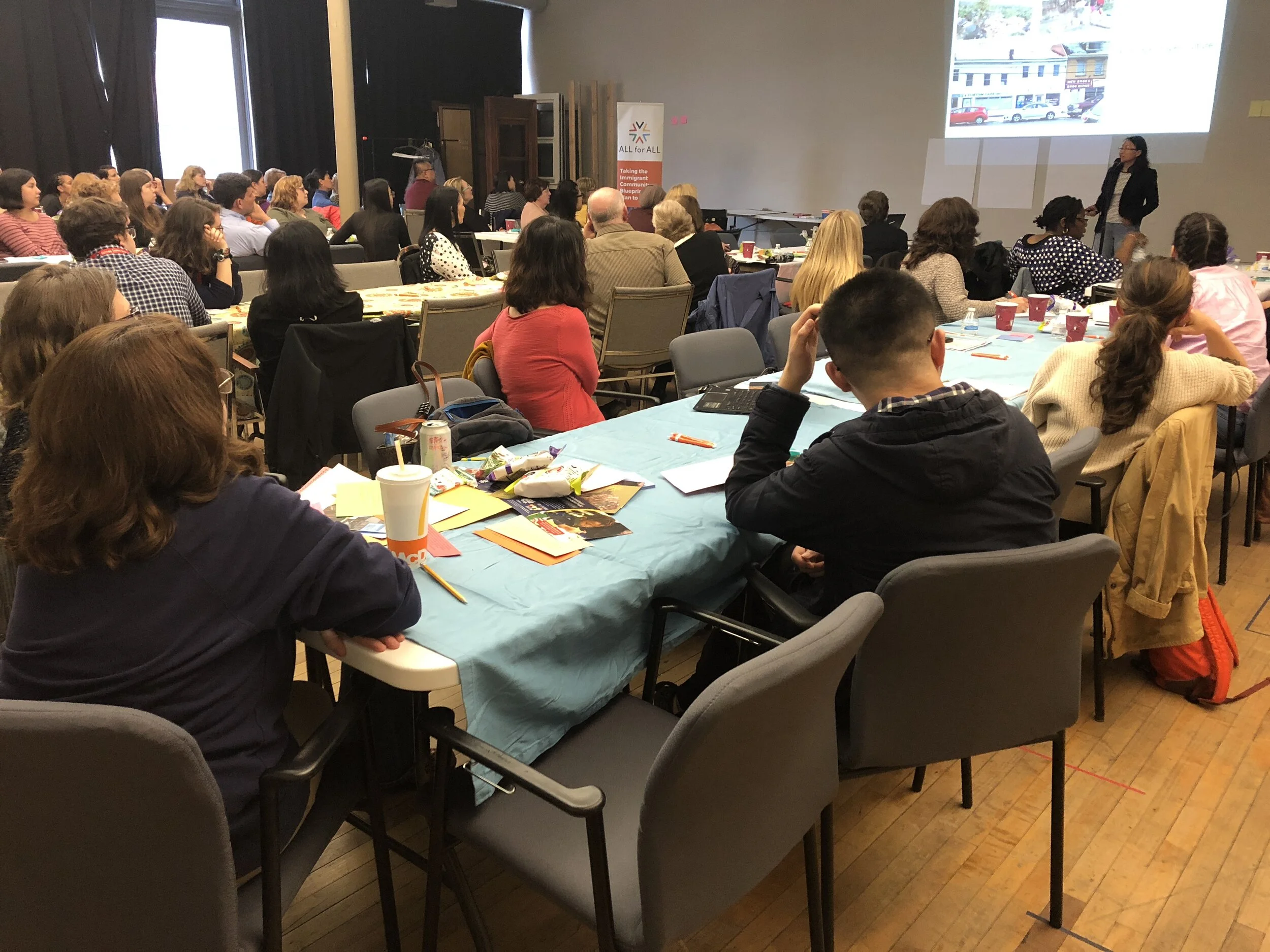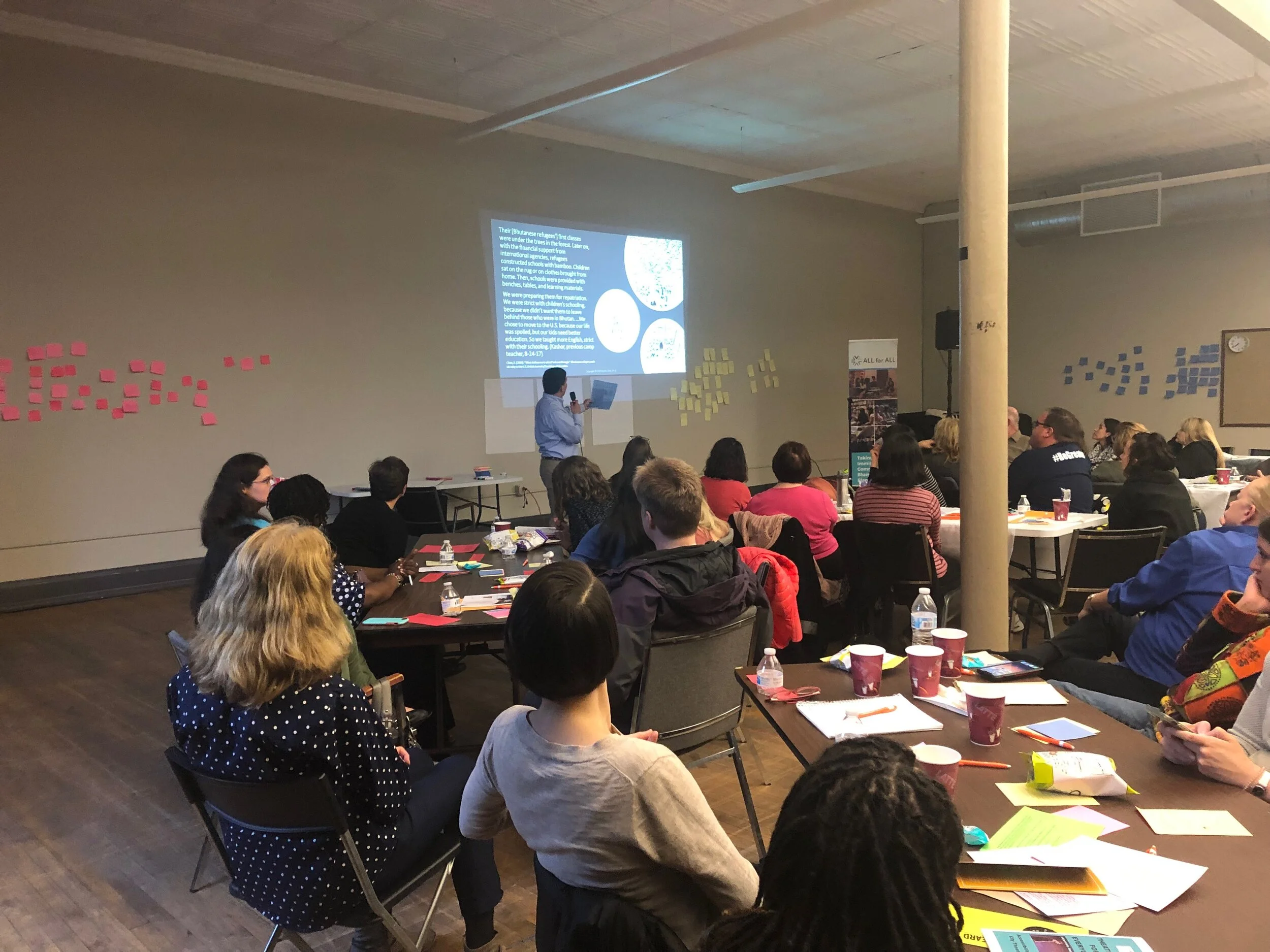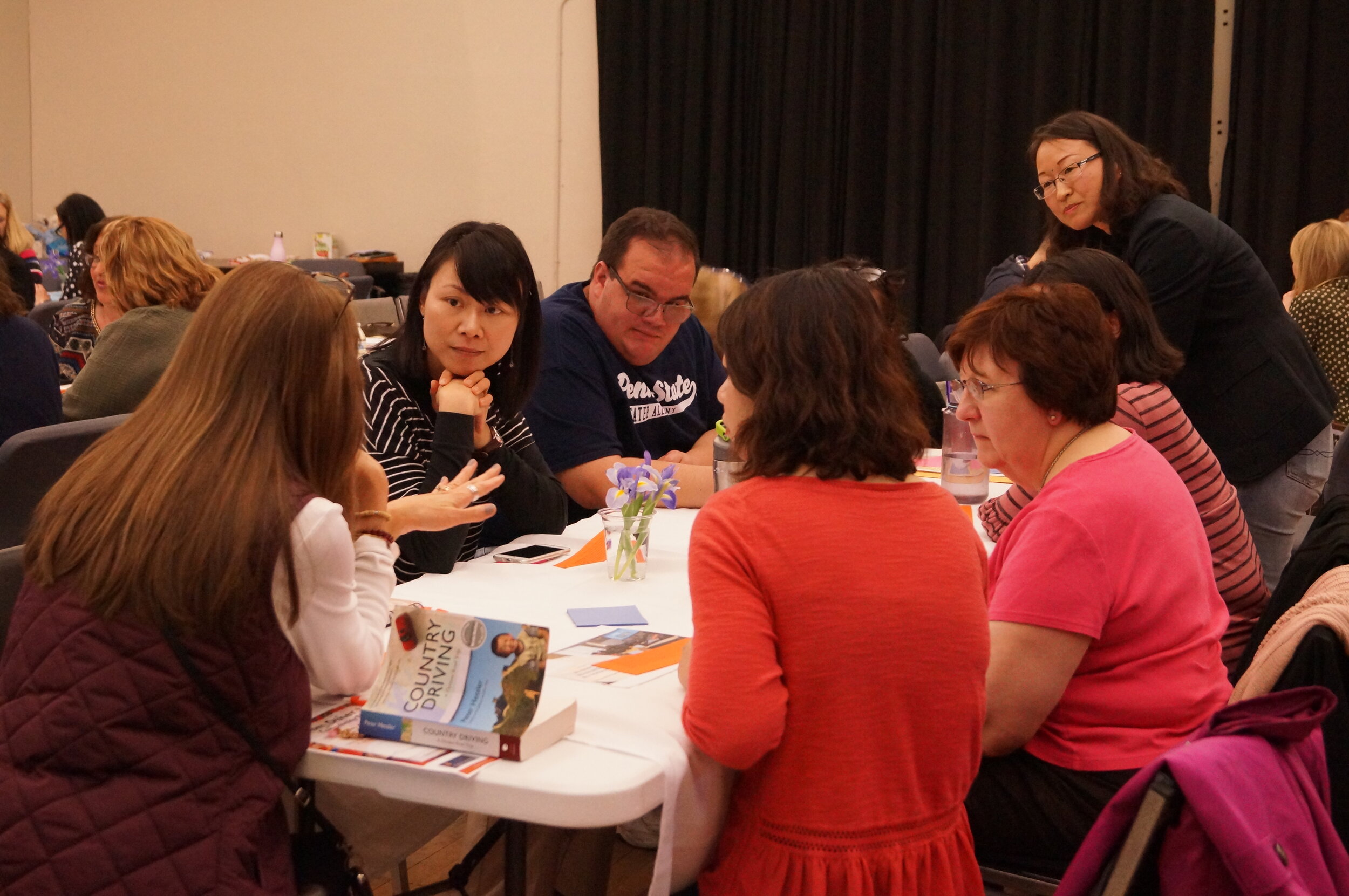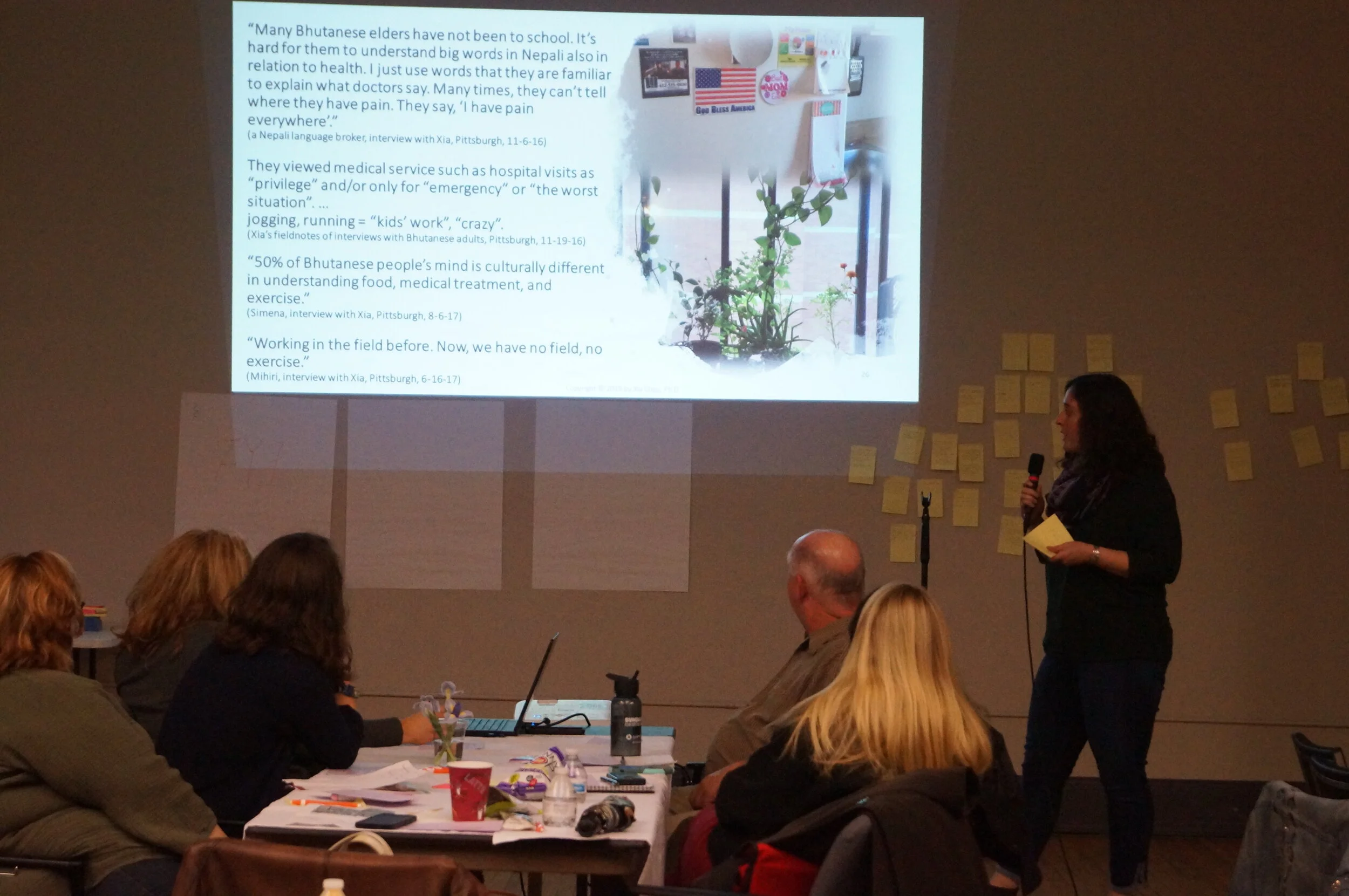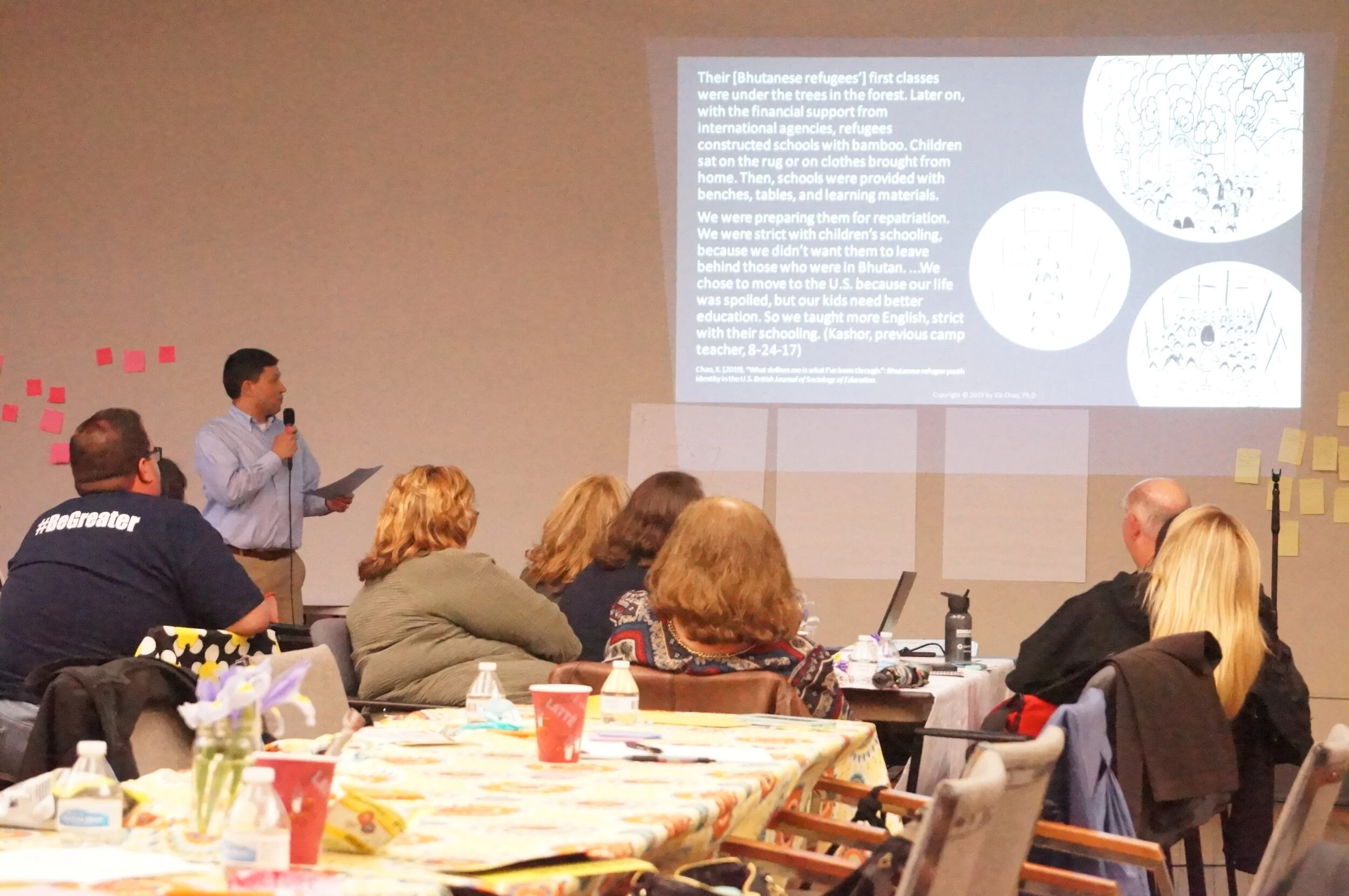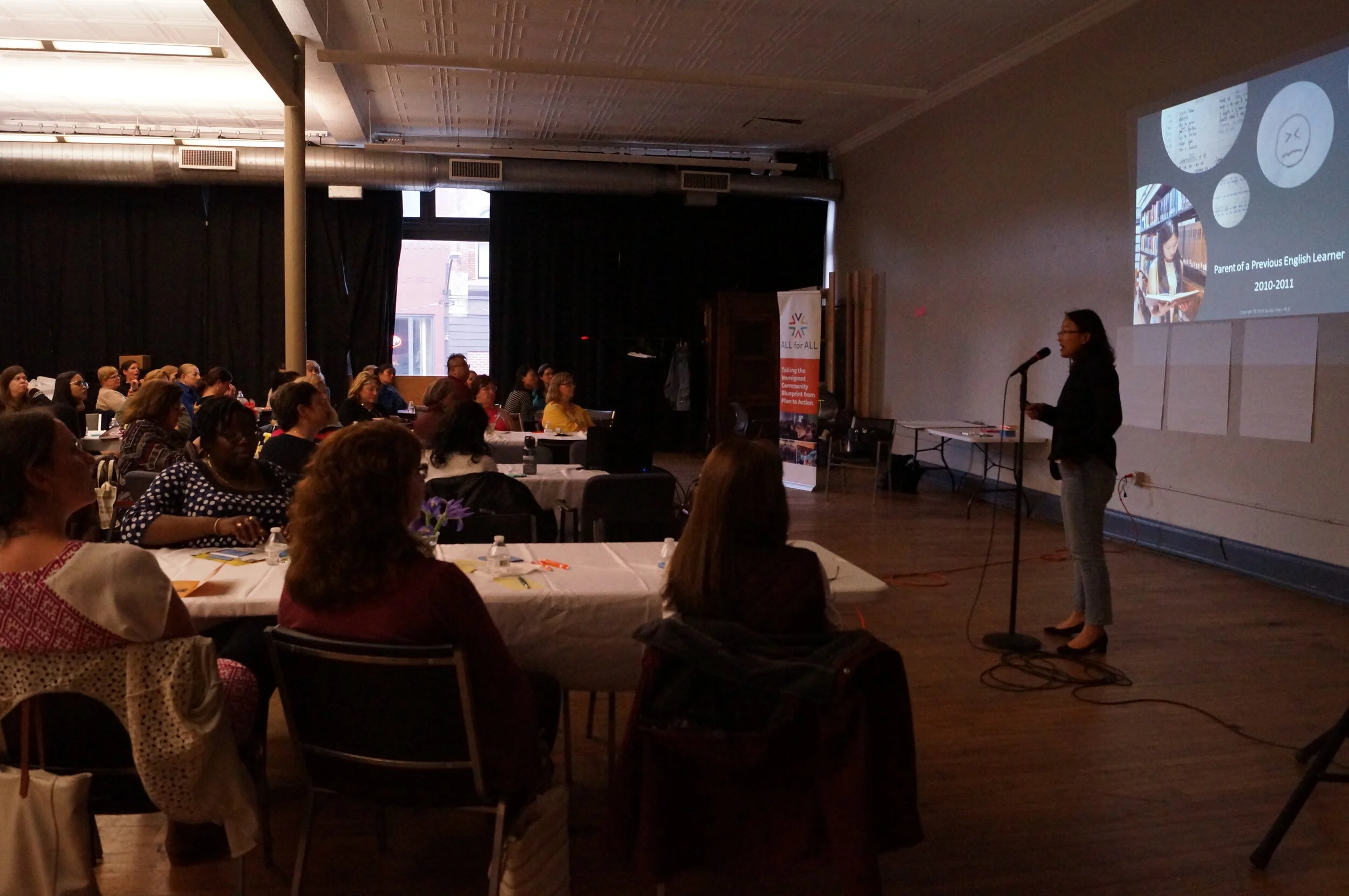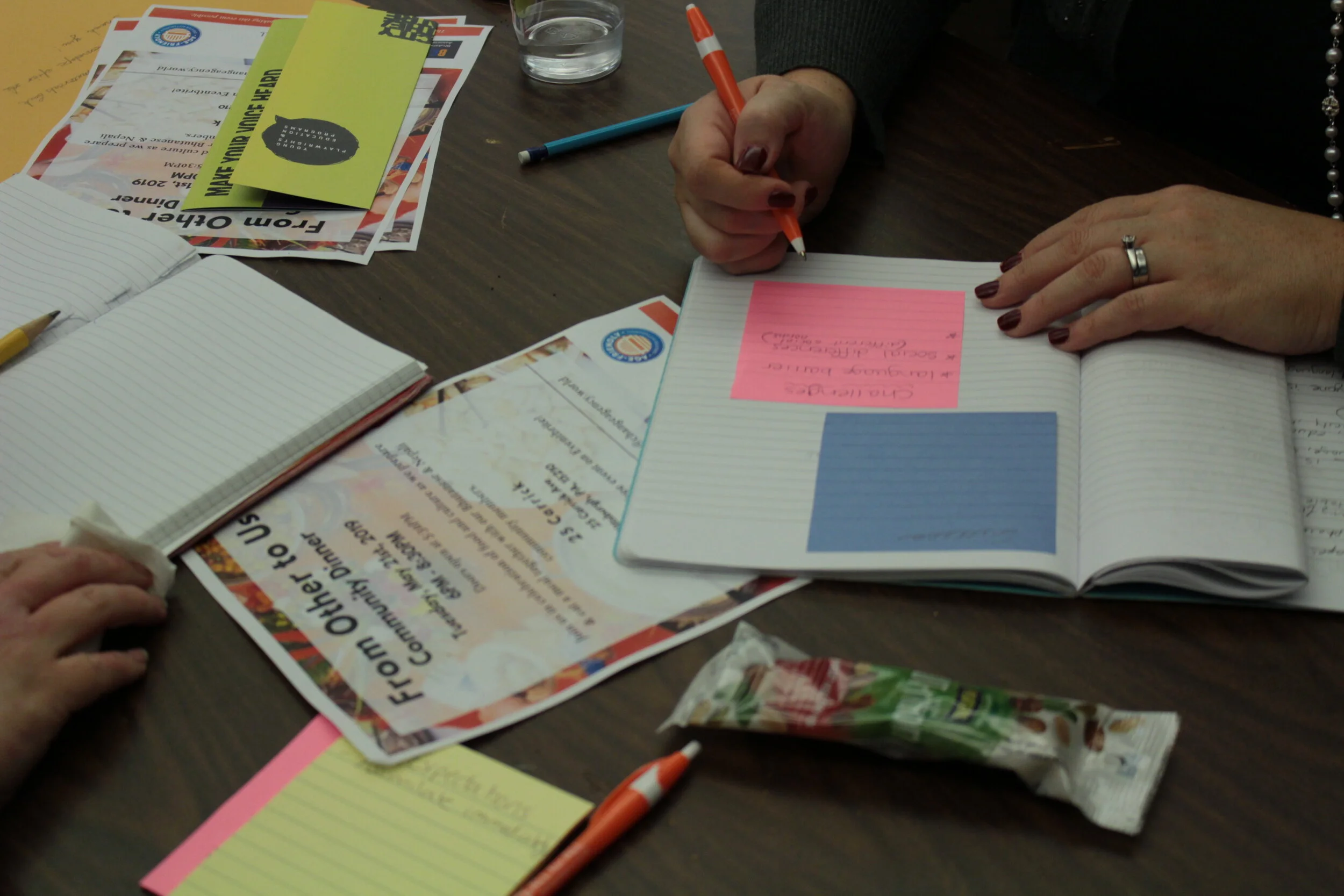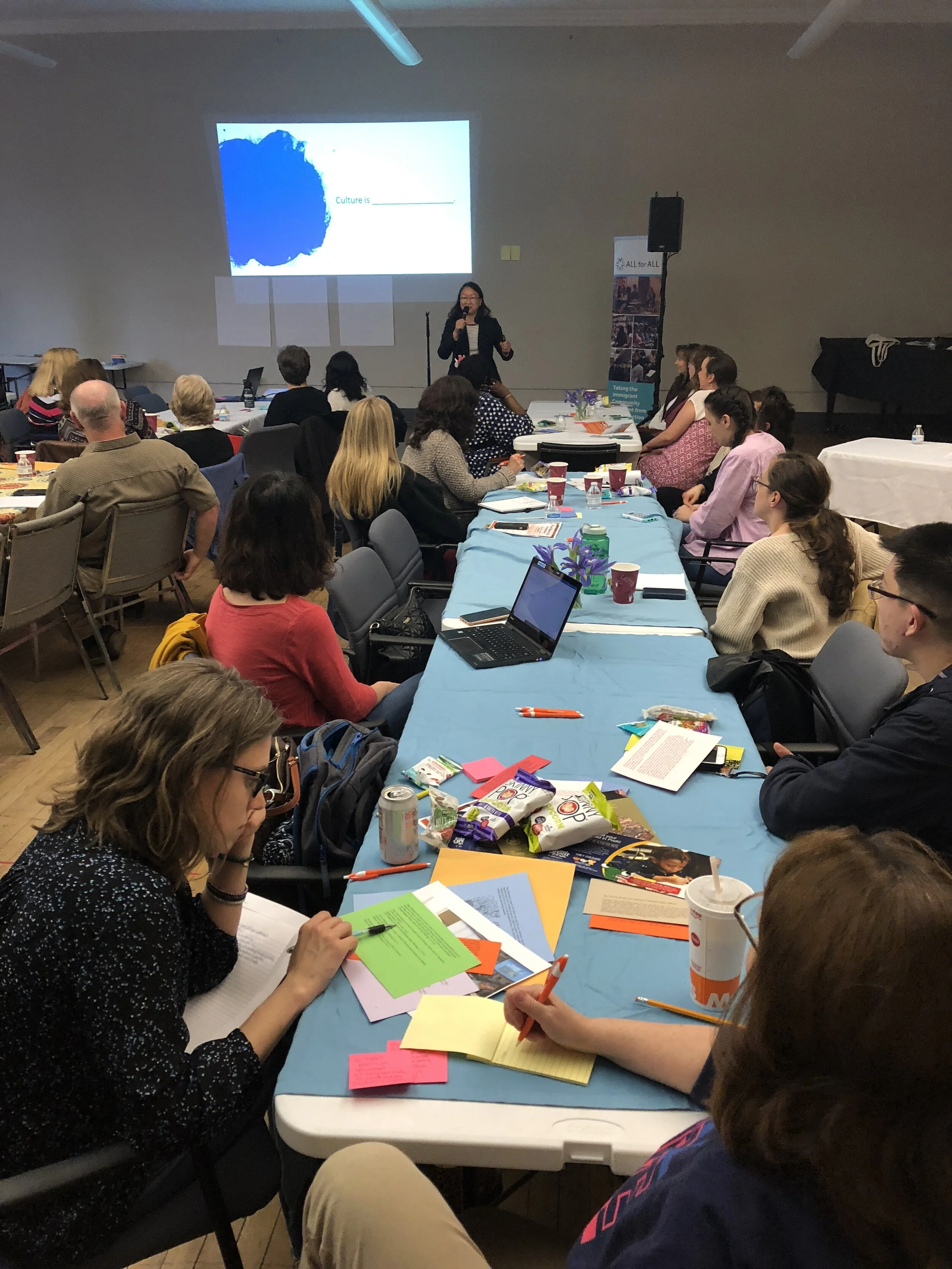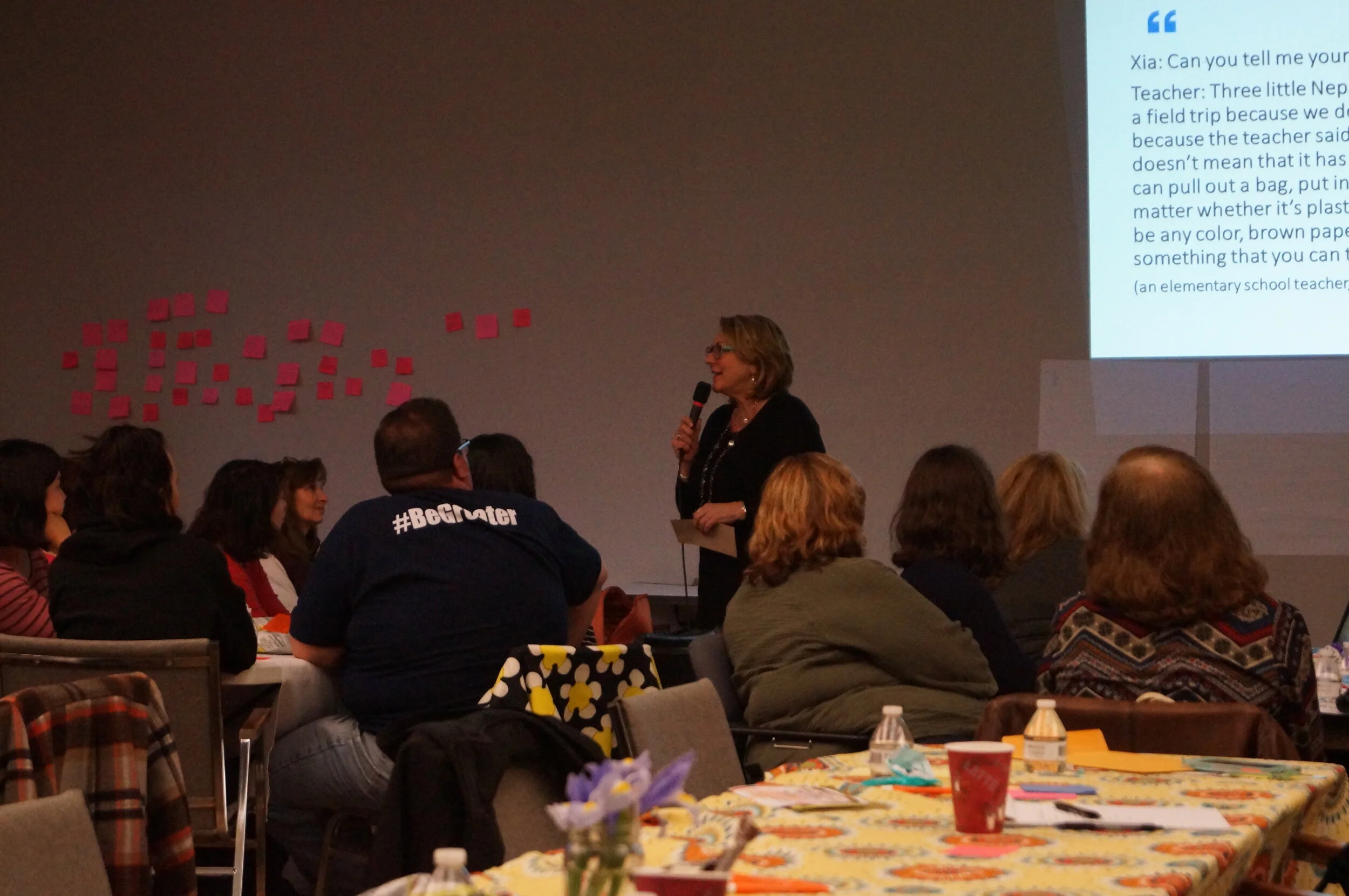Workshop I
May 13, 2019
City Theatre, Pittsburgh, PA
I learned…
Great stories and insight. Interesting data.
–immigration case manager
I am inspired by all you [Dr. Chao] are done in this field.
–a participant
Real insight of experiences of refugees.
–ESL teacher
More info about different cultures. Plan to took up papers to learn more.
–child development specialist
Perspectives of refugee’s and experience immigrating to America. Increased understanding of difficulties facing refugees.
–social worker
[I gained] A broader new of culture; That we all have the same challenges to overcome in our schools and community; Encourage my coworkers to attend future workshops; Use examples from the workshop to help students. Hope that you [Dr. Chao] can come to our school for an in-service!
–paraprofessional
The experience of refugee children in America is different from their parents. They struggle to fit in their peers. I will be more aware of refugee children’s needs and try to be more inclusive.
–refugee case worker
I found it enlightening and thought provoking. I really appreciated the research individual stories.
–family support
Data of refugee and immigrant families in Pgh. Be open-minded, and aware of the demography and actively search for resources for the families.
–family specialist
[I learned] More understanding of my students’ home and family lives.
–teacher
My understanding of the point-of-view of my students’ who are refugee or other ESL background has been deepened. I hope to be more sensitive and thoughtful when communicating with my students. -especially in recognizing that we don’t share the same background knowledge.
–special education teacher
Interactive style to engage audience. Real case discussion (make it real).
–education professor
I learned so much about culture/ trends/adjustments for our students (and parent) refugee population. It was interesting to examine biases.
–school nurse
I gathered a better understanding of the refugee population in the Pittsburgh area. In addition, I deepened my understanding of the struggles/hardships that these families go through on a daily basis.
I will apply this sensitivity to my students and share the knowledge with colleagues and those that are unaware of the challenges.
–ESL teacher
Gaining a deeper insight in experiences of refugee children; the knowledge very real and understandable.
–elementary teacher
It was helpful getting more specific information regarding the Bhutanese refugees. It will be useful to share with staff and administration when placing new students and communicating with families.
–ESL teacher
I learned so much! Mainly to be more sensitive, cognitive, patient when working with my refugee students and their parents. I plan to be more detailed in thinking about organizing my challenges, and expectations. And celebrate the successes more!
–teaching assistant
Dr. Chao’s research confirms much of what I learned/heard/assumed in my classrooms (Adult Ed). It also confirms teaching decisions we’ve made.
–director of ELL
[I gained] Deeper understanding of the experience of refugees. Demographic breakdown of refugees in the US. and local area.
–director of upper school admission
It was wonderful to be around other educator, as well as learn more about first-hand experiences/emotions through Xia’s interviews.
–community director
I like the personal stories about acclimating to the U.S. I teach a lot of Bhutanese and Nepali kids. I am interested in learning how to better communicate with them. I will use it in our professional development classes.
–ESL teacher
Their story in their journey!!
–first grade teacher
I try to navigate from a place of empathy while I am empathetic, I learned that I shouldn’t take for granted that refugee or immigrant understand what I’m saying.
–family service specialist
It is always so informative to hear about first hand experiences of immigrants/refugees/ESL students.
–teacher
Kindness and open mindedness matters! What ethnic/cultural groups are immigrating to PGH. To be a more culturally competent educator.
–early childhood teacher
More examples of untold stories. Powerful!
–teacher
Would like to read more of Dr. Chao’s articles.
–a participant
Not to take for granted that my communication is understood and how different it can be for our refugee students and families to adapt.
–teacher grades 2-5
Different approaches for teaching ESL.
–teacher
More about culture. View of others and stories. Continue to be open-minded, patient, and continue to learn.
–teacher

